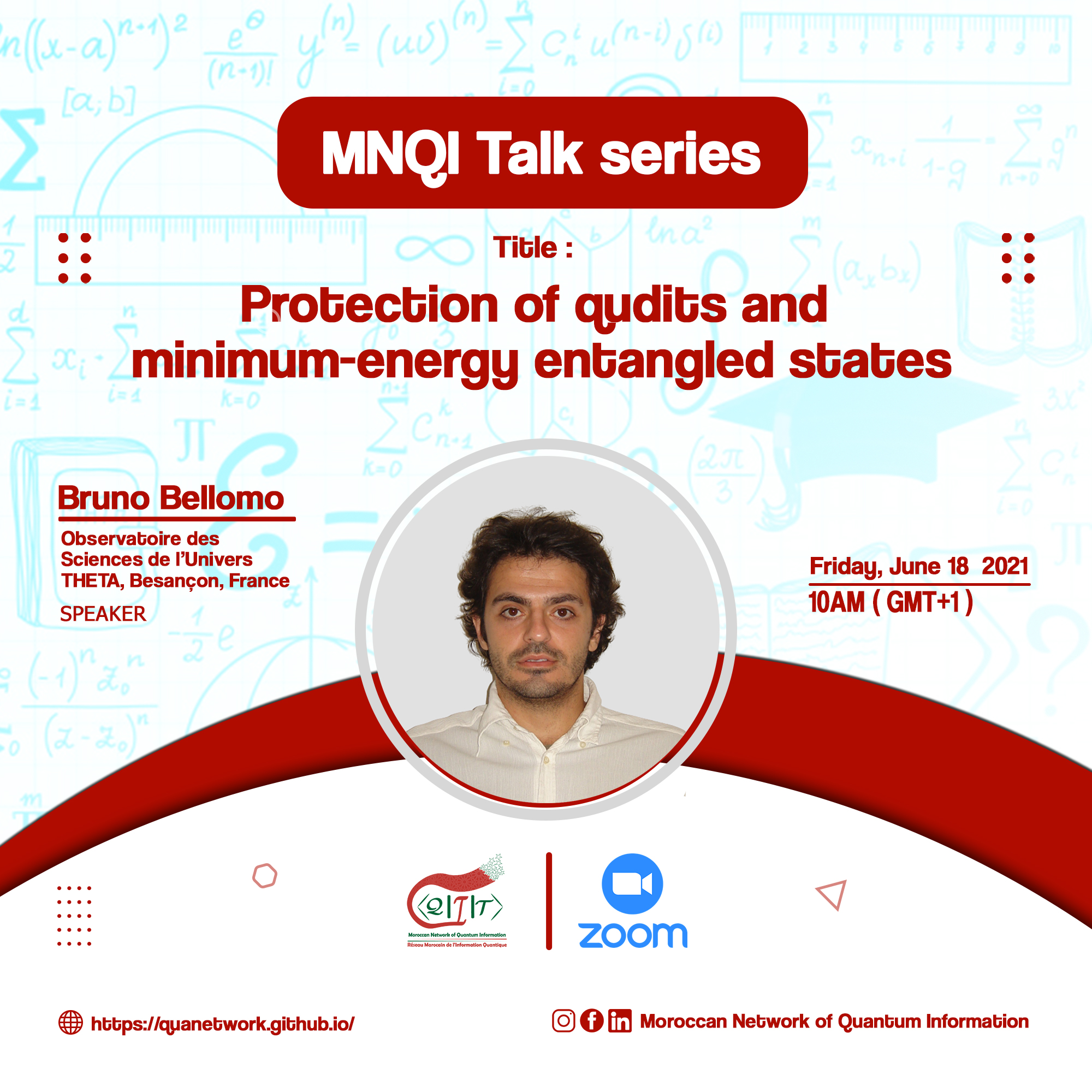
Date: Friday, June 18, 2021 | 10:00 (GMT+1) (Virtual)
Prof. Bruno Bellomo | Institut UTINAM, CNRS UMR 6213, Université Bourgogne Franche-Comté, Observatoire des Sciences de l’Univers THETA, Besançon, France

TITLE:
Protection of qudits and minimum-energy entangled states.
ABSTRACT:
In the first part of this presentation I will give a rapid overview of my research activity which mainly concerns theoretical studies on decoherence and dissipation processes in open quantum systems. In particular, recently my researches mainly focused on four topics: the control of engineered open quantum systems, quantum correlations, quantum thermodynamics, and the role of
indistinguishability of identical particles as a resource in quantum information. In the second part of
this talk I will then present in detail two recent studies.
The first study concerns the protection of an ensemble of d-level systems (qudits), upon which acts an arbitrary multiqudit gate, from the detrimental effects of a general noise [1]. I will present a generalized continuous dynamical decoupling (GCDD) procedure making use of time-dependent external control fields and allowing one to realize this protection. The GCDD procedure will be first presented for the case of an arbitrary qudit and then applied to the case of a Hadamard gate acting on
a qutrit. Numerical simulations will be shown to point out the effectiveness of the protection scheme.
The qutrit model is, in particular, implemented using the three magnetic hyperfine states of the ground
energy level of an 87 Rb atom and laser beams whose intensities and phases are modulated according to our prescription. This model allows one to generate continuously all the possible operations which are, in general, needed to apply the GCDD procedure. I will finally show that this protection method can be extended to the case of an ensemble of arbitrary qudits.
The second study concerns the link between the amount of entanglement present in an arbitrary
finite bipartite system and the values of the local energy that such a system can possess [2]. I will
present which are the minimum and the maximum value for this local energy for any value of the
entanglement, also giving the form of families of states reaching these bounds. In particular, the
minimum-energy entangled states (MEESs) show interesting connections with other research fields
such as quantum thermodynamics and many-body systems. I will also present a numerical study of the
probability of randomly generating pure states close to these energy bounds, which results to be, in
all the considered configurations, extremely low, except for the two-qubit and highly degenerate
cases. The design of energetically more efficient protocols for quantum technologies could take profit
of these results. I will finally discuss how to generate the MEESs either by means of unitary
transformations or through zero-temperature thermalization protocols [3].
[1] R. de Jesus Napolitano, F. F. Fanchini, A. H. da Silva, and B. Bellomo, Protecting operations on qudits
from noise by continuous dynamical decoupling, Phys. Rev. Research 3, 013235 (2021).
[2] N. Piccione, B. Militello, A. Napoli, and B. Bellomo, Energy bounds for entangled states, Phys. Rev.
Res. 2, 022057(R) (2020).
[3] N. Piccione, B. Militello, A. Napoli, and B. Bellomo, Generation of minimum energy entangled states,
Phys. Rev. A 103, 062402 (2021).
